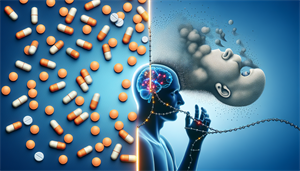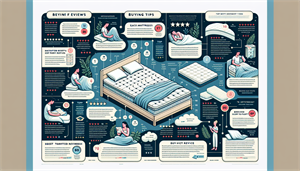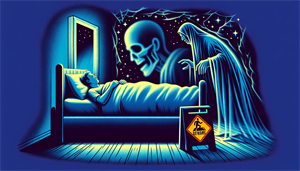
Understanding the Relationship Between Adderall and Sleep Apnea
Are you concerned that your Adderall medication could be disrupting your sleep or even causing sleep apnea? This article delves into the relationship between Adderall use and sleep health, exploring how this common ADHD treatment might lead to sleep disturbances and the potential risk of sleep-disordered breathing.
Understanding this connection is vital for managing both ADHD and ensuring restorative sleep, as well as answering the question: can Adderall cause sleep apnea?
Key Takeaways
Adderall can disrupt sleep by reducing REM sleep, increasing nocturnal awakenings, and worsening the effects of untreated sleep apnea, thereby negatively affecting sleep quality for individuals with ADHD. Use of ADHD stimulant medications like Adderall may mask sleep apnea symptoms and increase the risk of developing the condition, making careful monitoring and distinction between ADHD and sleep apnea symptoms critical.
Effective management of sleep issues in ADHD patients may involve non-stimulant medications, lifestyle adjustments for better sleep hygiene, and a proactive, personalized treatment plan that could include CPAP therapy and monitoring sleep patterns.
Understanding Adderall's Role in Sleep Health
Adderall, a prescription stimulant, is widely used in the management of ADHD. It stimulates the central nervous system and increases the availability of certain chemicals in the brain to help improve focus and attention. But what happens when the sun goes down and it’s time for sleep? How does Adderall impact our sleep health?
Adderall’s impact on sleep health is complex. On one hand, it can disrupt sleep cycles, leading to diminished sleep quality and potential disturbances. This is due to an overabundance of dopamine in the brain, hindering individuals from achieving restorative Rapid Eye Movement (REM) sleep.
On the other hand, Adderall can exacerbate sleep-disordered breathing, thereby elevating the likelihood of developing sleep apnea due to its impact on the central nervous system and physiological functions. Additionally, sleep problems are more common in individuals with ADHD, who are often prescribed Adderall, with as many as 50% potentially experiencing these issues.
The Stimulant Effect on Sleep Cycles
Stimulants, such as Adderall, can significantly disrupt sleep patterns, leading to diminished sleep quality and potential disruptions, which can complicate the treatment of sleep apnea. Specifically, Adderall can have a direct impact on the circadian rhythm, causing delays in the onset of sleep and disruptions that can affect REM sleep, potentially leading to sleep deprivation. Adderall can have the following impacts on sleep:
- Reducing the percentage of REM sleep
- Increasing the occurrence of nocturnal awakenings
- Resulting in reduced sleep efficiency
- Worsening the effects of untreated sleep apnea
- Causing challenges in falling asleep
- Prolonging the time to fall asleep
- Reducing the overall duration of sleep
These effects collectively lead to poor sleep quality lack, resulting in negative impacts on sleep quality.
Potential for Sleep Disordered Breathing
Apart from affecting sleep cycles, Adderall can also influence sleep-disordered breathing. It can enhance alertness and decrease the body’s respiratory drive, which could potentially lead to decreased depth of breathing and more frequent interruptions in breathing during sleep.
Scientific evidence indeed suggests a connection between the use of Adderall and an increased risk of developing sleep apnea.
The stimulating properties of Adderall can have adverse effects on sleep patterns and quality, potentially leading to disruptions in sleep. Moreover, individuals who had a history of snoring or potential obstructive sleep apnea during childhood may be at an increased risk of being diagnosed with ADHD or experiencing its symptoms.


